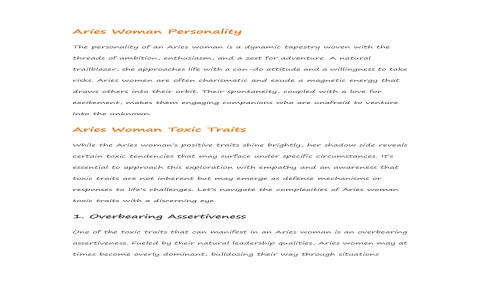I started this whole relationship thing, specifically dating people who carry those strong, detail-oriented Virgo traits, thinking I had it all figured out. I really believed that I, the chill, go-with-the-flow guy, could simply introduce some “relaxed spontaneity” and fix what I perceived as overthinking. Man, was I wrong. Dead wrong.
The Initial Grind: Trying to Force Fit a Square Peg
My first serious practice phase, which was really just me messing up repeatedly, centered around trying to rationalize away every tiny criticism. I dated this incredible woman who was highly focused, bordering on obsessive about structure. If the towels weren’t folded exactly right, or if I put the milk carton back on the wrong shelf, it was a ‘thing’.
I spent months trying to argue logic into emotional reactions. I tried to lighten her up. I’d try to make her see that leaving a dirty coffee cup in the sink overnight wasn’t a moral failure. But my practice was garbage because I was focusing on the symptom, not the core need.

My typical mistake log looked something like this:
- I’d try to debate the merits of perfectionism, thinking if I won the argument, the behavior would stop. It just made her feel unheard and escalated things.
- I’d dismiss concerns about timing or scheduling as “just anxiety,” which was a massive screw-up because it invalidated her need for control in her environment.
- I’d assume her being quiet meant she was fine, when she was actually processing the last three days of data points I’d missed, leading to sudden, unexpected blow-ups.
I realized I was treating her personal operating system like a suggestion box, instead of the foundational code she needed to run on.
The Crash and Burn: Why I Know This Stuff
Why am I sharing this detailed log of failure? Because I had a total, life-altering relationship disaster that forced me to quit theorizing and start implementing real change.
The real practice, the painful, unavoidable kind, started about four years ago. We were living together, and I was still running my old self-employed gig—which meant long hours, erratic income, and truly messy habits. I thought my job stress excused my domestic failures.
One evening, I messed up a seemingly minor utility renewal. It required signing a form and submitting it by 5 PM. I missed the deadline by an hour. When she came home, she saw the late stamp on the envelope. She didn’t yell or cry. That would have been easier to handle.
She just quietly started packing a bag. It wasn’t about the $50 late fee; it was about the fundamental breach of process, the perceived carelessness, the disruption of the stable system she depended on to manage her high-functioning life. I had shattered the carefully constructed shield she used to navigate the world.
She left a short note: “I can’t live in chaos. I need structure, and you won’t respect the boundaries I set up to achieve it.” And she was gone. Just like that.
I was completely stunned. I thought we were fighting over trivial stuff, but she was fighting for her mental stability. And the universe decided to twist the knife. Right after she left, my main contract unexpectedly evaporated, leaving me with zero income flow. Suddenly, I was alone, broke, and drowning in administrative tasks I hadn’t managed because I assumed she would pick up the slack. I realized I had outsourced my entire life structure to her, and when I insulted that structure, it collapsed everything.
The New Practice: Building the Logbook of Respect
I realized I had two choices: drown, or become the structure. To get her back (and frankly, to save myself), I didn’t just send vague apologies; I started documenting my own behavior like a scientist tracking data. This became my new practice log.
I started logging every single household task and deadline. I forced myself to internalize the schedule. I set timers for chores. I labeled storage containers. I submitted receipts exactly when they arrived. I didn’t do it because I suddenly loved cleaning; I did it to prove that I could internalize and respect her operating environment.
When she finally agreed to meet me two months later, I didn’t just offer abstract promises of change. I pulled out my physical logbook. It wasn’t polished—it was scribbled with cross-outs and notes—but it showed 60 days of consistent behavioral modification and documentation of minor successes and failures in maintaining order.
That, right there, was the turning point. The essential lesson I learned through this painful practice is that you don’t fight the Virgo structure; you incorporate it. You don’t try to change the person; you learn to live within the detailed, meticulous system they need to thrive. If you disrespect that need for order, you are telling them you don’t respect their security. I had to learn that the hardest way possible, by losing everything important to me before I finally started truly practicing respect.







